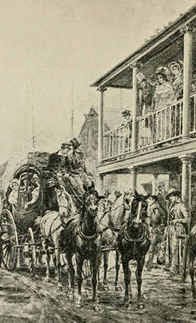From the Reminiscences of Colonel Robert Chester:
I asked about General Jackson's displays of temper. Colonel Chester replied that he was
a man of force, and used his temper to gain his ends, but was not of bad or ungovernable temper. " His manners were courtly, and the expression used about him at the time was that he was as able in the cock-pit as in the battle-field, as capable in small as in great things. He was a believer in predestination, and trusted and believed in special Providence, considering the battle of New Orleans as an evidence of Divine favor vouchsafed him."
I served under Jackson at New Orleans," Colonel Chester went on, " and he once said to me that the battle was won by Coffee's repulse of the night attack of the British. Had that attack succeeded there were not Americans enough to hold the line. This was in December, before the arrival of Carroll. Cotton bales were undoubtedly used in the fortifications.
[Source]
















